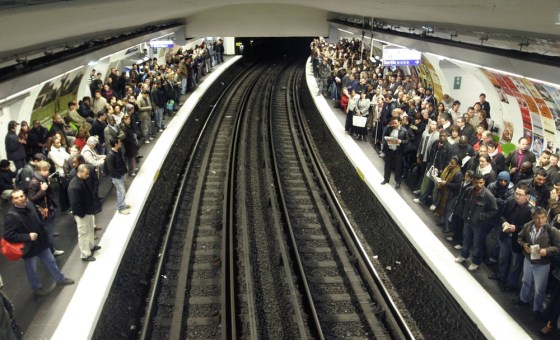The classic line “Going my way?” may suggest a carefree and uncommitted lifestyle, but for couples at least, commuting to work in the same direction may be one of the factors that paves the way to marital satisfaction.
At least that’s what a new study has found.
The report, “Going my way? The benefits of travelling in the same direction,” showed that partners feel more positive about each other and are happier if they travel to work in the same direction than those who don’t. The findings were based on two surveys conducted in the United States and in Hong Kong. Researchers asked more than 400 married people to rate their satisfaction with their spouses and to describe the direction, distance, and duration of their respective commutes.
“We think that similarity in commuting direction is symbolic of similarity in goals more generally, and that this is what underlies the effect,” said Robert S. Wyer Jr., a visiting professor at the Chinese University of Hong Kong who supervised the research. “We know from other research that individuals with similar goals are more attracted to one another, and commuting to work is essentially pursuing a goal. So, commuting in the same direction may be symbolically linked to pursuing similar goals.”
Wyer said that there is quite a body of evidence that supports the notion that similarity along many dimensions increases interpersonal attraction, even when seemingly unimportant. Two people with the same first name, or who learn they come from the same city or state, for example, “may feel attracted to one another even if they have no other information about one another,” he said.
Should people who do not commute or commute in opposite direction from their spouses be worried?
“Obviously not,” Wyer said.
“I think the results are undoubtedly of greater theoretical and conceptual importance than practical importance. Commuting in the same direction obviously contributes a very small proportion of the variance in marital satisfaction. It would be ludicrous to conclude that it’s essential to marriage when so many other, more important things contribute," he said. "The effects are statistically significant and therefore very likely to exist, but the magnitude of the effect, in relation to that many other factors, is likely to be very small.”
A followup laboratory experiment eliminated other interpretations of the survey findings, as even randomly paired strangers reported greater attraction to one another when they walked in the same direction rather than in different directions.
Considered alone, the field studies have alternative interpretations, Wyer said.
“Couples who commute in the same direction may find it easier to get together after work for dinner or other mutually enjoyable activities, and this could account for their greater marital satisfaction. The laboratory studies are not susceptible to this interpretation,” he said.
But when both laboratory and field studies are considered in combination, it increased confidence in the findings, he said.
The Harvard Business Review recently featured the study in an article, “You Can Improve Your Relationship” by Wyer, who is also a professor emeritus at the University of Illinois. (The study was originally published in the Journal of Experimental Social Psychologyin July.)
Jill Kristal, a clinical psychologist in Larchmont, N.Y., who frequently counsels couples and families on workplace transitions and work-life balance issues, was initially surprised that the topic would be the subject of scholarly research, and was somewhat concerned about the modest sample size. But once she thought about it, it made sense.
“It made me think about my wedding, and walking down the aisle to get married,” Kristal said, noting that the long-established tradition was a symbolic sharing of similar goals, much like shared commutes in the study.
In addition, she said the findings resonate with her counseling work with couples. “When one partner decides to stay at home, the adjustment is really difficult,” as they often have difficulty relating to each other. "They no longer understand where the other is coming from.”
More money news:
- Boomer women struggle in recession's wake
- Microsoft pins high hopes on Windows 8
- Higher taxes, rising prices in store for US in 2013
- Video: 4 tips for growing retirement money tax-free
- Sign up for our TODAY newsletter
